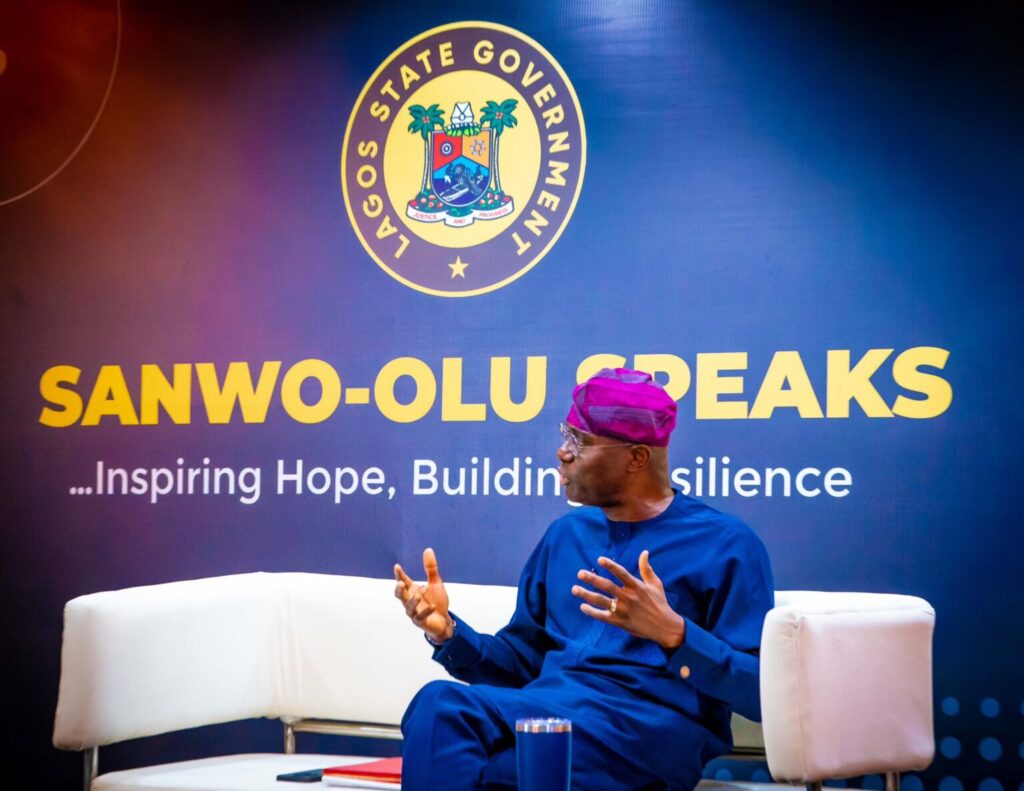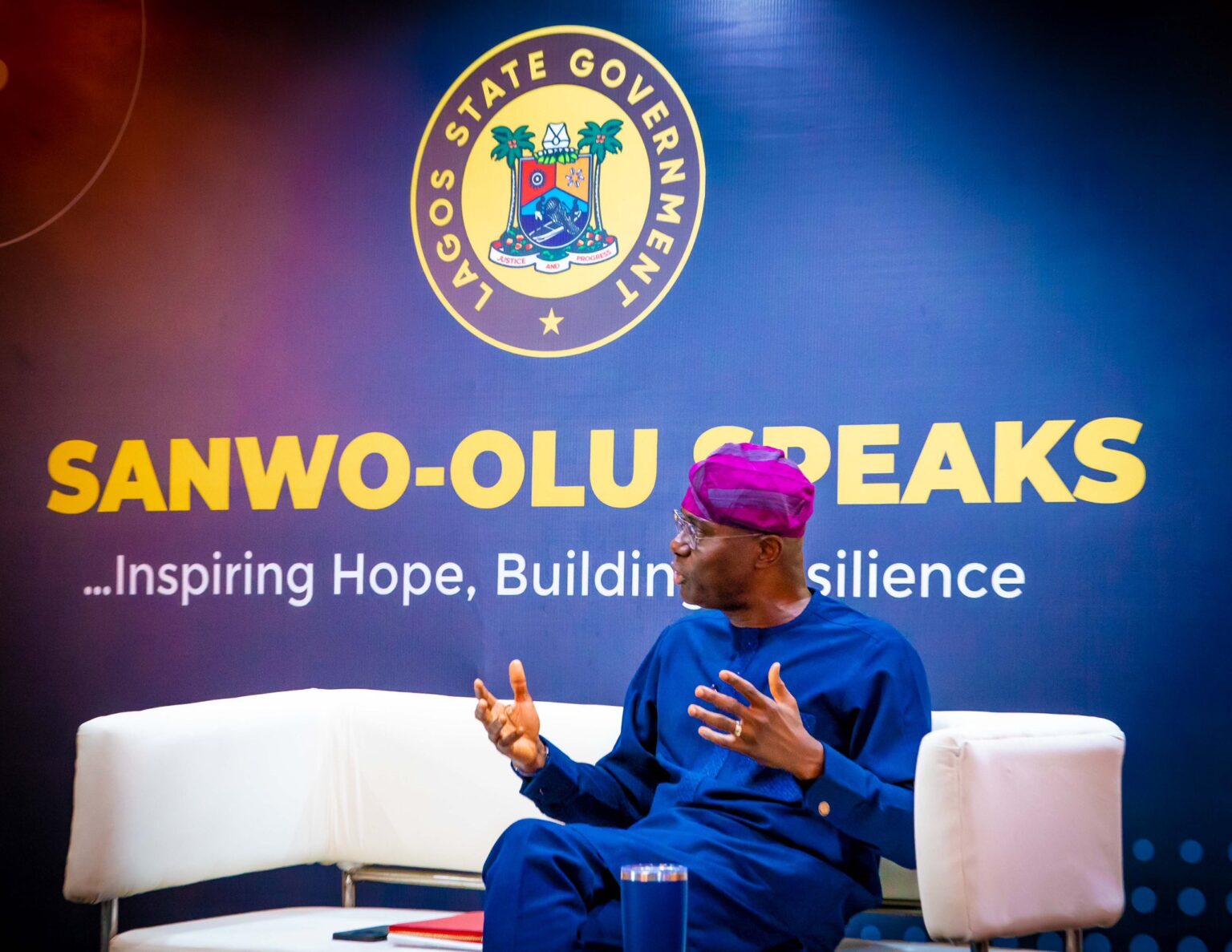By Muyiwa Akintunde

Holding government accountable has become a mantra within civil society and many other spaces, particularly in developing societies like ours. Accountability is indeed one of the major ingredients that give life to representative democracy. Parliamentarians at every level and their counterparts in the executive arms of government are required to periodically report their activities to their constituents and be subjected to scrutiny by the people who put them in power.
One of the states that has been fastidious about this is the tiniest in landmass but mightiest in responsibilities – Lagos. The tradition, which helps governments to stay focused on service delivering in specific areas, has been sustained by the present administration of Babajide Sanwo-Olu, which is into the second year of its second term tenure.
Even before he was elected governor through the 2 March 2019 election, the then candidate of the All Progressives Congress had announced that, if elected, his administration would be guided by the T.H.E.M.E.S. development agenda. Supported by his then running mate, Dr. Obafemi Hamzat, Sanwo-Olu told a cross-section of the audience at a private event centre in Ikeja, the state capital, that THEME, as a strategy, was conceived after wide consultations with all stakeholders on the challenges and the future of the state. He dropped the clincher: “We didn’t just prepare the T.H.E.M.E.S. documents in our bedrooms or in one hotel or inside a board room”.
Having kept faith with the guiding principles and executing the plan as designed for four years, Sanwo-Olu went one notch up upon being sworn in for a second term in office on 29 May 2023. He said: “Henceforth, it (the Agenda) will be known as ‘T.H.E.M.E.S+’, the ‘plus’representing the incorporation of an intensified focus, in these next four years, on Social Inclusion, Gender Equality and Youth’.
So, let’s talk about T.H.E.M.E.S+.
Each aspect of governance covered by Ministries, Departments and Agencies (MDAs) was divided into six (now seven) components, and no aspect of life and living in the state is left out. In other words, this is a development agenda that have in mind every one in the space of Lagos State.
Take the ‘T’ in the T.H.E.M.E.S+. Areas of concentration are Traffic Management and Transportation. If you drill further here, you will find Works and Infrastructure, and Land Transportation, which are interconnected. Without one, there is not the other. Then we have Waterfront Infrastructure and Development, and Lagos Metropolitan Area Transport Authority (LAMATA), the popular agency created to coordinate transport planning, policies, and public transport infrastructure implementation in the state. Then there is the almost century-old Lagos Ferry Services Company (LAGFERRY), the major ferry services provider in the state.
When you think about the ‘H’ in the T.H.E.M.E.S+development agenda, your focus is on Health and Environment. It also includes Environment and Water Resources. This pillar has been responsible for the health scheme aimed at achieving affordable, comprehensive and unhindered quality healthcare services for allresidents of the state. One of them is mass-oriented ’IleraEko’ through which healthcare is delivered in an affordable manner.
In the first ‘E’ bucket are Education and Technology. This section directs attention to Education; Science and Technology; Women Affairs and Poverty Alleviation; Wealth Creation and Employment. It’s a whole wide world of learning, innovation, gender focus and main streaming, and all. It is a touch point for elements that knit the society together.
The next compartment, ‘M’ captures a worldview of today and tomorrow. In ‘Making Lagos a 21st Century Economy’, you have the activities of several MDAs, including Finance, Economic Planning and Budget;Technology; and Security. Also on the bill are Administration of Justice; Commerce, Industry and Cooperatives; and Agriculture (with a focus on food security).
Also in the segment are Physical Planning and Urban Development; Energy and Mineral Resources; and Housing. The others are Public Private Partnership;Sustainable Development Goals and Investments; as well as the Central Business District.
Going further, we encounter the second ‘E’ in the acronym. And that covers Entertainment and Tourism. This is further unbundled into Tourism, Arts and Culture; Home Affairs; and Youth and Social Development.
‘S’ in the T.H.E.M.E.S+ development agenda stands for Security and Governance. And it touches Special Duties and Intergovernmental Relations; Justice; Office of Civil Engagement; and Establishment, Training and Pensions. Others are Parastatals Monitoring Office; Secretary to the State Government; Local Government and Community Affairs; and Office of the Head of Service.
To cap it all is the added value – the plus to the T.H.E.M.E.S. This covers Social Inclusion, Gender Equality and Youth. This represents the incorporation of an intensified focus in those ordinarily left behind in societal planning.
“In other words, we are strengthening and reinforcing THEMES with a ‘No One Left Behind’ philosophy. No one will be left behind on account of their social status, gender or age; we will design all our policies and programs to ensure that everyone is carried along and catered to”, the governor said upon being inaugurated for a second term in office.
To borrow the lines of star singer, Flavour, on Sanwo-Olu’s THEMES+ development agenda, “if you don’t know…Now you know”.
